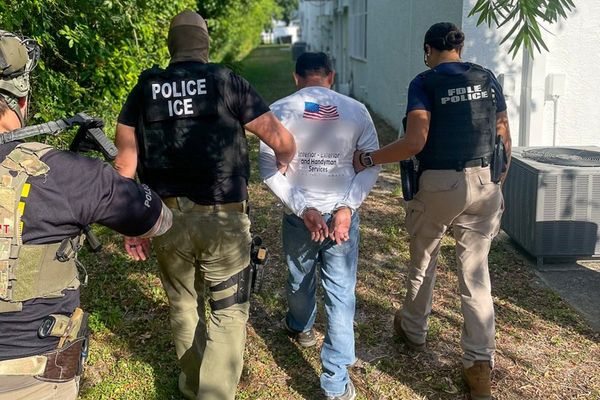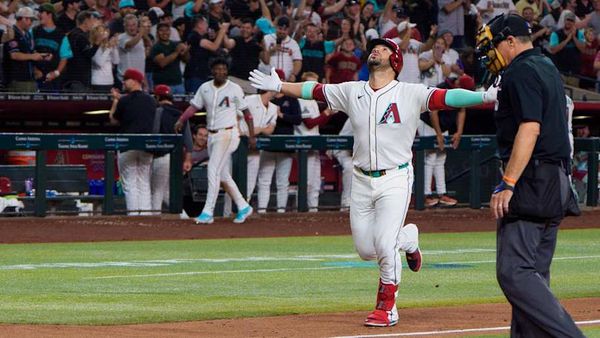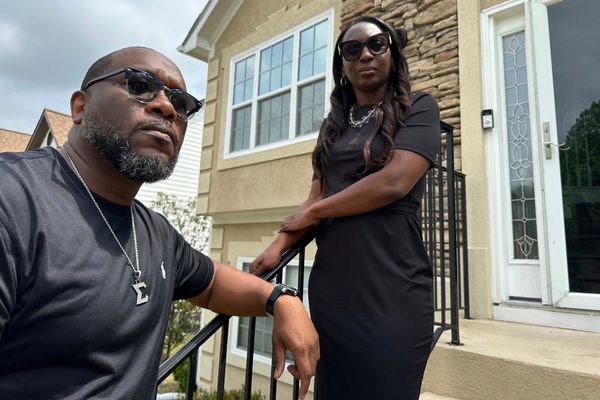
Volodymyr Zelenskiy is expected to travel to the UK next week to address European leaders at Blenheim Palace who are meeting to discuss Ukraine, European security and democracy.
He will also make his first visit to Ireland on Saturday morning when he touches down in Shannon airport, Co Clare, for a meeting with the Irish taoiseach, Simon Harris.
Ireland, which has a longstanding policy of military neutrality but is contributing non-lethal aid such as clearance of landmines to Ukraine through the EU, is expected to offer more support to Ukraine’s efforts to return an estimated 20,000 children, who have been forcibly relocated to Russia and Belarus.
The Ukrainian president met Keir Starmer last week at the Nato summit in Washington, but this would be his first opportunity to meet a wider delegation of the Labour government, who will be eager to reiterate the UK’s continued support.
His travel arrangements are rarely confirmed but a source said it is “90% certain” Zelenskiy will be there.
Thursday’s conference is the fourth meeting of the European Political Community, a collective launched after Russia’s invasion of Ukraine in February 2022 that was the brainchild of the French president, Emmanuel Macron.
It is being seen as a “very significant” opportunity for Starmer to not just host up to 50 European leaders but to restore confidence in the UK and show the world the country is back on the international stage after years of reputational damage caused by Brexit.
The EPC is designed to facilitate the strengthening of ties between EU and non-EU leaders in an informal setting, with previous conferences held in Spain, Moldova and the Czech Republic.
Apart from the UK, non-EU countries including Norway, Iceland, Georgia, Kosovo, Serbia, Albania and Turkey are invited, though it is understood that Recep Tayyip Erdoğan, the Turkish president who did not attend previous summits, has not confirmed participation.
As host Starmer will address the opening plenary session, which will be held in one of the halls in Blenheim Palace, the birthplace of Winston Churchill. He is expected to underline the UK’s commitment to Ukraine and Zelenskiy, and to resetting the country’s post-Brexit relationship with the EU.
The prime minister has already pledged to establish closer ties with the EU, and the new minister for European relations, Nick Thomas-Symonds, travelled to Brussels for an introductory meeting with the former Brexit negotiator Maroš Šefčovič on Monday.
Ahead of the meeting, Starmer said: “Europe is at the forefront of some of the greatest challenges of our time.
“Russia’s barbaric war continues to reverberate across our continent, while vile smuggling gangs traffic innocent people on perilous journeys that too often end in tragedy.
“I said I would change the way the UK engages with our European partners, working collaboratively to drive forward progress on these generational challenges, and that work starts at the European Political Community meeting on Thursday.”
Harris has pledged to support the UK at a European level and has instructed his ministers to increase contact with London counterparts.
Starmer will have a number of bilateral talks – he is meeting Harris the night before at Chequers and is expected to have a separate meeting with Macron on Thursday in addition to taking soundings from EU leaders on what a new security and defence pact with the UK could look like post-Brexit.
Ukraine will dominate the plenary discussion with leaders, who will then be invited to join three break-out working groups centring on defence and democracy, which will include sessions on the disinformation crisis, energy and migration.
Macron is also determined to use the occasion to send a strong message of support to Ukraine from the EU in face of renewed threats from Vladimir Putin and more ominous comments this week by the former Russian president Dmitry Medvedev, who denounced Nato’s summit promise to eventually support Ukraine’s membership of the defence bloc.
Security around the summit is tight with airspace restrictions in place over the Oxfordshire palace between 14 and 18 July. Police drones and the police air service will enforce the restricted airspace, according to Thames Valley police.







